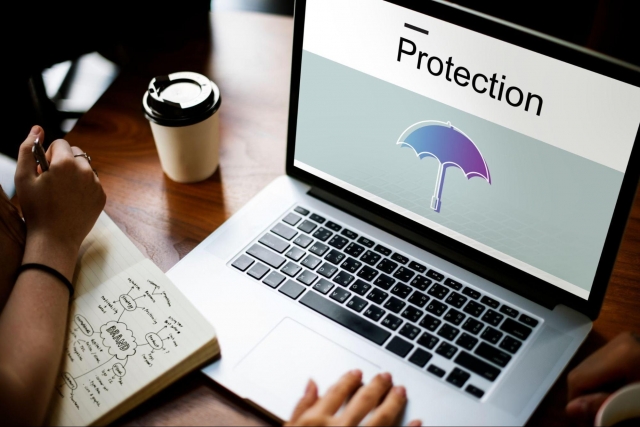The issue of brand protection is even more significant nowadays due to the fact that businesses are highly dependent on the internet regarding how they attract and retain customers. Cybercrime is expanding at a very high rate and may cost businesses $10.5 trillion a year, thus posing a significant danger to even the smallest and largest companies. It is no longer a choice whether to keep your brand safe online or not. It is a necessary condition of business development and success in the long run.
Brand impersonation is one of the greatest issues. According to Federal Trade Commission data, there has been a rise of more than 70% in online fraud and scams in the last few years. Spam emails, counterfeit products, and misrepresented advertisements not only damage the image of your brand but also cost you money and make people lose confidence.
Company managers and professionals must recognize the ways for online brand protection. Fraud, customer reassurance, and the ability to build a strong and trusted brand capable of growing safely and confidently can be easily avoided by utilizing appropriate strategies.
Why Online Brand Protection Is No Longer Optional
With the increasing number of businesses that switch to the online environment, they are also getting more vulnerable. By 2025, cybercrime might cost companies an estimated more than $10.5 trillion a year, including finances, reputation, and customer trust. SMEs are particularly vulnerable, and 43% of them are victims of cyberattacks since they do not have the strongest protection. Big companies like Facebook and Google are not immune to impersonation attacks, which demonstrates that no business can be considered too big to be targeted.
It is now necessary to protect your brand online. A single fraud or impersonation may negate years of customer faith. Online brand protection assists companies in being ahead of threats and, at the same time, safeguards their reputation and revenue.
Understanding Brand Impersonation and Its Impact
One of the threats that is increasing online is brand impersonation. It occurs when fraudsters make counterfeit profiles or websites or advertisements imitating actual brands to defraud customers. According to the Federal Trade Commission, the number of identity theft and fraud complaints increased more than 2 times between 2020 and 2022.
The main effects include:
- Not making money on fake transactions or fake goods
- The customers losing their trust as well as ceasing to make purchases
- Reputational loss and brand loyalty
- Being exposed to more sophisticated fraud, such as AI scamming and phishing
Entrepreneurs must move fast and keep track of their brand so that they do not incur losses and save themselves.
Essential Online Brand Protection Techniques Every Entrepreneur Should Use
Brand impersonation protection takes the appropriate tools, strategies, and vigilance. Companies ought to track their brand names on the internet, social media platforms, and shopping platforms. The fake product or fake profile checking tools facilitate prompt response to the situation before it gets out of hand.
The essential ways to secure your brand are as follows:
- Monitoring online references, false profiles, and placings
- Enabling two-factor authentication and frequent scans on social media
- Checking products and materials using watermarks or third party seals
- Educating employees and customers on phishing spots
- Installation of alerts on impersonation or counterfeiting
- Carrying out frequent checks of websites, domains, and partners
These steps can be used to prevent fraud, to ensure that the customers are not afraid, and to maintain the brand reputation.
Integrating Technology and Trust for Secure Brand Growth
Most entrepreneurs are afraid that safeguarding their brand on the internet requires a complicated framework or expensive staff. The tools of today are made to be easily accommodated to the daily work, and protection has become easy and quick. Gartner reports that by looking forward, 65% of small businesses intend to adopt automated tools in cybersecurity by the year 2024. Pattern recognition and behavior analysis can be used to scan threats with AI tools to save time and effort.
It is also important to establish trust with customers. According to the 2024 Edelman Trust Barometer, 81% of consumers use trust as the basis of their buying, and 73% want the brands to keep them safe on the internet. A safe and reliable brand enables companies to increase, attract regular clients, and be free of counterfeits.
Strengthening Brand Trust Through Effective Online Protection
All businesses attach a lot of importance to online brand protection. The fraud and scams are getting more and more widespread and may lead to the loss of money and ruin the reputation of a company. The customers lose confidence, too, due to these issues. The businesses can avoid fraud and keep customers safe by monitoring the brand online with the help of tools, managing social media accounts, and checking the existence of fake products.
Most important is to build trust, other than to employ the right tools. A customer is better placed to be more confident and loyal to businesses that are transparent regarding the way they secure their customers and how they react promptly to issues. Solution providers such as Bytescare can assist businesses in monitoring their online presence, preventing impersonation, and defending digital assets with a simple solution.






